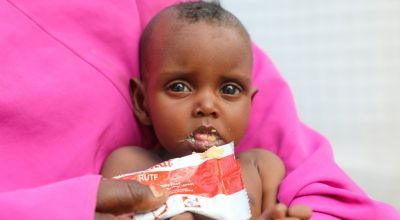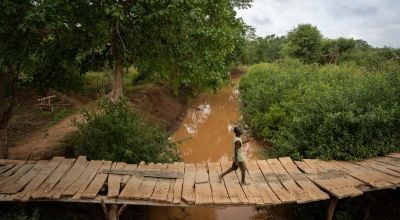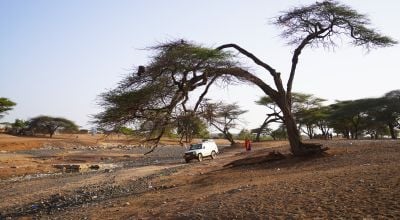
Read our 2023 annual report

Knowledge Hub
Water brings hope and opportunity in Somaliland
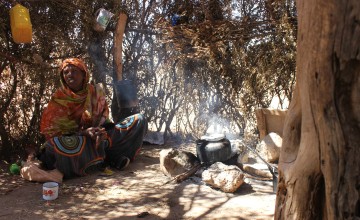
Somali native, Roda Mussa Mohamed, describes how the arrival of a water point in her small village in Somaliland has had a truly life-changing impact – on her family’s health, well-being and even on her business.
The installation of a water point in a small rural village is a game changer. The addition of this crucial resource allows villagers to wash and clean freely, and to drink water without the risk of getting sick. What’s more, it brings opportunities for trade, commerce and a better life.
Single mother of six, Roda, is from Geedabeera village in Somaliland. Roda separated from her husband six years ago and has been the sole breadwinner ever since. She supports her family by selling tea and cooked goods from a small thatched hut in the centre of the village.
Until recently, Geedabeera village had no water access point. Villagers had to travel long distances to find water, especially during the dry season when nearer sources ran dry. Roda often travelled a gruelling four hours to find water. As a result, she was away from her children and shop for long periods of time, affecting her ability to earn an income.
A village seeks change
Determined to improve the situation in Geedabeera village, residents looked into alternative ways of sourcing water – like purchasing trucked water – but unfortunately they had neither the funds nor the capacity to implement a solution. Thankfully an assessment carried out by Concern recognised the need for water in the village, and with support from The Guernsey Overseas Aid & Development Commission, a well was installed. Clean water is now readily available in the village and community members are seeing a dramatic improvement in health, hygiene and sanitation.
Prior to the arrival of the well, the community used contaminated water sources for drinking and as a result children and elderly people suffered from diarrhoea, typhoid and other water-borne illnesses. Thanks to the new water source, illnesses are increasingly rare and community members have become more conscious about sanitation and hygiene. Roda has noticed that both her children and the wider community are healthier and have become more conscious about disposing of waste and using latrines.
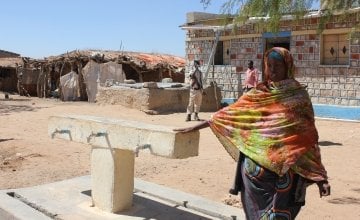
Water enhances livelihoods
Beyond the immediate benefits, the water system also enhanced the ability of farmers to make money in Geedabeera village. The well significantly alleviated some of the most dire impacts of drought, and according to Roda, who owns two cows, the increase in crop production that results from access to water means that, “the availability of food will be stable, insha’allah [God willing].”
Roda has also seen increased footfall in her tea shop since the installation of the water source. Positioned just yards from the water point, Roda’s shop is frequented by villagers and farmers from surrounding areas often take a tea break at before returning home.
The arrival of this new water point has been life-changing for not only Roda, but her children and the 5,000 other residents of Geedabeera village. No longer required to trek for hours to retrieve clean water, villagers have the freedom to drink, wash, clean and pursue a livelihood. Access to clean water is undoubtedly transformative, and as stressed in the 2030 Agenda, it is essential to the full enjoyment of life and all other human rights.
Blog based on case study written by Saynab Mohamud and Erin Wolgamuth
Read more



